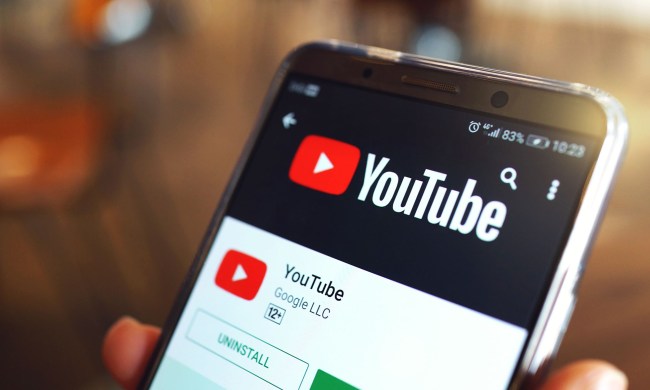A new bill in the U.S. Senate could cause the internet as we know it to cease to exist by holding major tech companies like Facebook or YouTube liable for anything posted on their platforms.
On Wednesday, Senator Josh Hawley (R-MO) introduced controversial legislation that would amend Section 230 of the Communications Decency Act (CDA). Known as the Ending Support for Internet Censorship Act, it has caused bipartisan backlash on how it would affect tech companies, content creators, and everyday users.
Tech companies like Twitter or YouTube currently have protection under Section 230 against being held liable for what users post on the site. That’s why you typically can’t sue Facebook for a hateful statement someone else posts on your timeline.
The bill focuses on limiting political bias, according to a press release from Hawley’s office. Companies could apply for immunity from liability by submitting external audits to prove that their algorithms and content removal policies were politically neutral, which would then have to be reviewed and approved by the Federal Trade Commission (FTC). In practice, companies would have to moderate their content either way — they would either be liable for user content and could get sued, or they’d have to ensure their content seemed politically neutral, a decision made by a government agency.
The bill would only affect the biggest companies, including Twitter, Facebook, and Google — those with more than 30 million U.S. users, 300 million global users, or $500 million in revenue.
“This bill forces platforms to make an impossible choice: Either host reprehensible, but First Amendment protected speech, or lose legal protections that allow them to moderate illegal content like human trafficking and violent extremism,” said Michael Beckerman, president and CEO of the tech lobbying group the Internet Association. “That shouldn’t be a tradeoff.”
Tech companies don’t want to be sued, so if they were held liable for each and every tweet or post, those companies would likely review them for libelous material before they’re posted. Live-tweeting, for example, would become all but impossible, since Twitter moderators would have to look at each tweet before it is published. The same goes for every Facebook post or YouTube video — human beings or algorithms would have to review them before they go public. The whole process would be subject to government review as well.
Billy Easley, a policy analyst at conservative think tank Americans for Prosperity, said the government would be controlling free expression online.
“Eroding the crucial protections that exist under Section 230 creates a scenario where government has the ability to police your speech and determine what you can or cannot say online,” Easley said in a statement.
Hawley did not explain how this type of in-depth policing would work, especially for platforms like Facebook and Twitter that have billions of users posting every day, sometimes multiple times a day. Some of those users even rely on social media for income, like Instagram influencers or YouTubers.
YouTuber Lindsay Ellis has more than 690,000 subscribers to her channel and posts once per month. Ellis’ channel focuses on long-form video essays that are created after significant research, fact checking, and the use and documentation of sources. For a creator like her who already plays by the rules, she says that in theory, she wouldn’t be affected as a content creator.
But Ellis said on a practical level, YouTube would likely change their platform and business model altogether rather than going to the extreme effort of reviewing each and every video that gets posted to the site.
“If a law like this were to pass, YouTube would basically be forced to turn into a platform like Netflix,” she told Digital Trends. “They wouldn’t have much choice rather than to quit being the platform they set out to be.”
Ellis said the bill would be the “end of social media” since companies would have to foot the bill for the cost of moderating all content. Social media platforms are already moderating hate speech, graphic violence, and conspiracy theories, but in Ellis’ words, this would be the “greatest mass censoring in modern history.”
Overall, the legislation doesn’t do much to fix many of the largest problems with social media. Holding big companies liable for individual posts or making them stick to a nonpartisan standard does little to solve issues around privacy or targeted marketing using your data, according to Stuart Shapiro, a professor and associate dean at Rutgers University’s Bloustein School of Public Policy.
“[The bill] would do little to address what some see as the biggest problems in social media right now, which is privacy protections and the targeting ads,” he told Digital Trends. “The problem they are trying to address is not the most important … it is particularly with a partisan dent and in doing so raises a host of other issues.”
Shapiro said that extreme moderation would not solve the issues facing social media and the internet at large; instead, it would water down Americans’ ability to express themselves on social media.
“Social media is used by individuals, in that sense what’s on social media reflects us, and that’s good and it’s bad,” he said. “There are some wonderful things and some awful things.”
It’s not quite clear whether Hawley’s bill has a chance of passing or not, since much of the Senate has yet to weigh in. That said, regulating big tech companies is one of the few issues both Democrats and Republicans can agree on. One thing is for certain: Those companies won’t let it pass if they can help it.
“[The Computer and Communications Industry Association] has spent decades fighting internet censorship regimes around the world, alongside U.S. diplomats,” the tech lobbying group’s president Ed Black said in a statement. “It would be disappointing to see the country that has been a leader against restrictive regimes create its own government-regulated regime to oversee the political correctness of internet content.”



